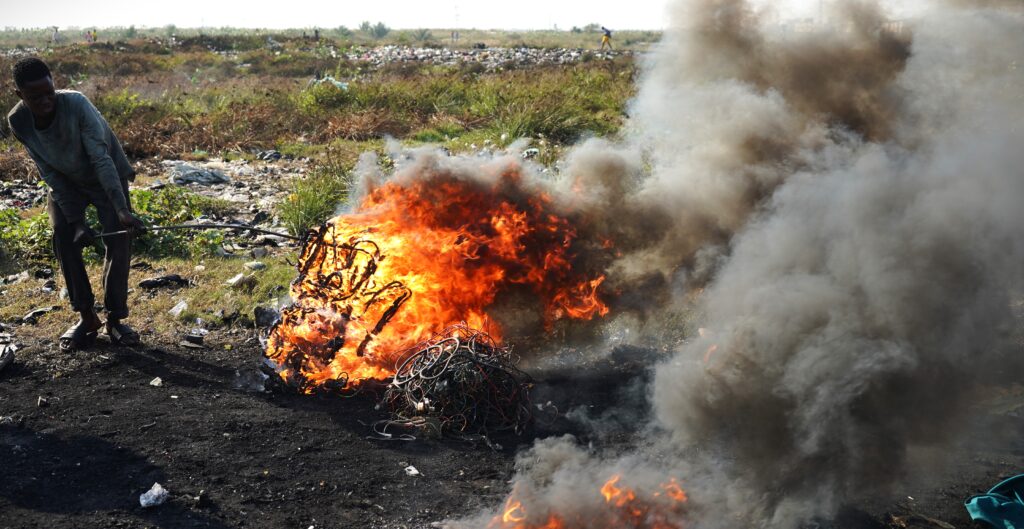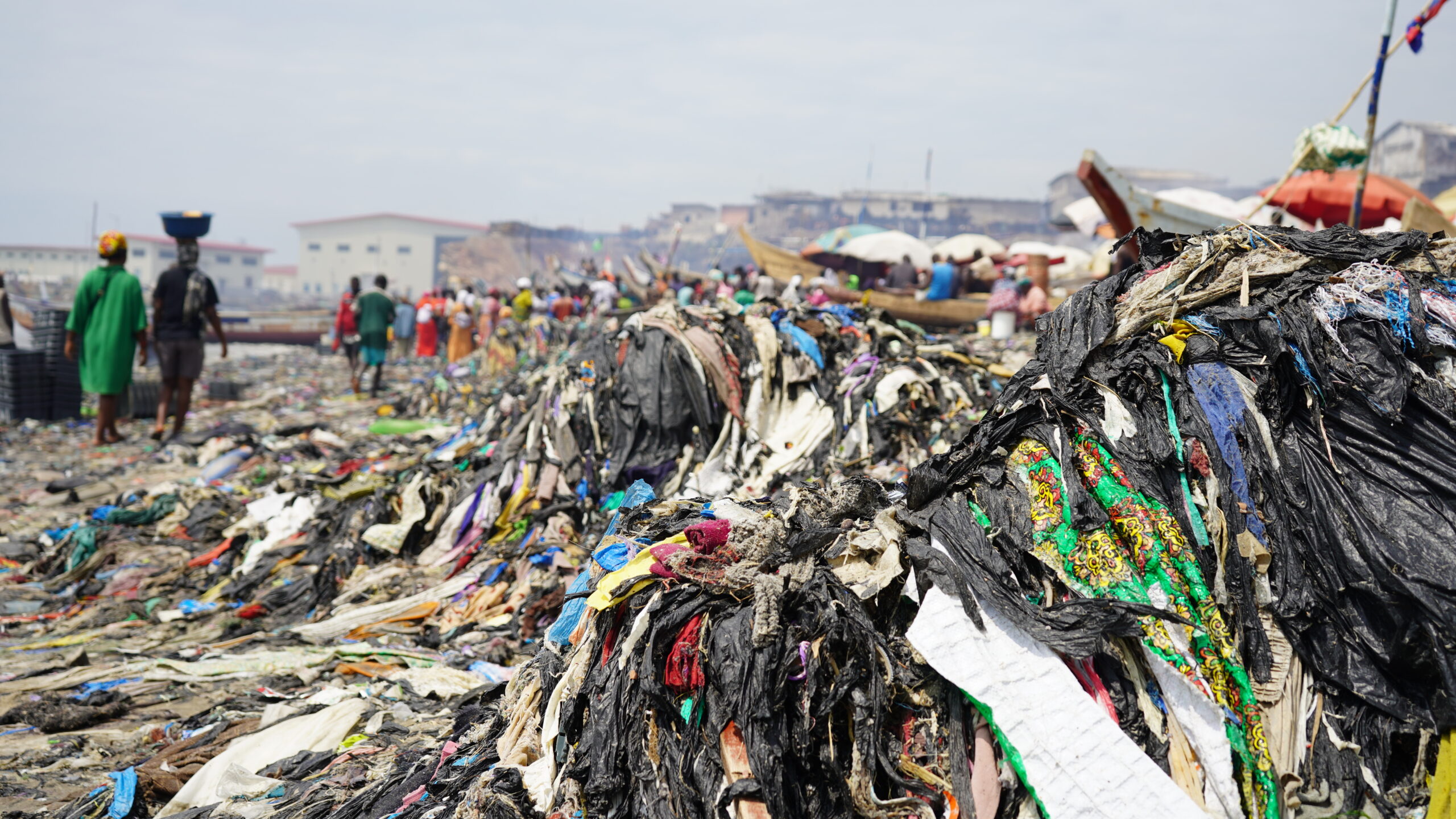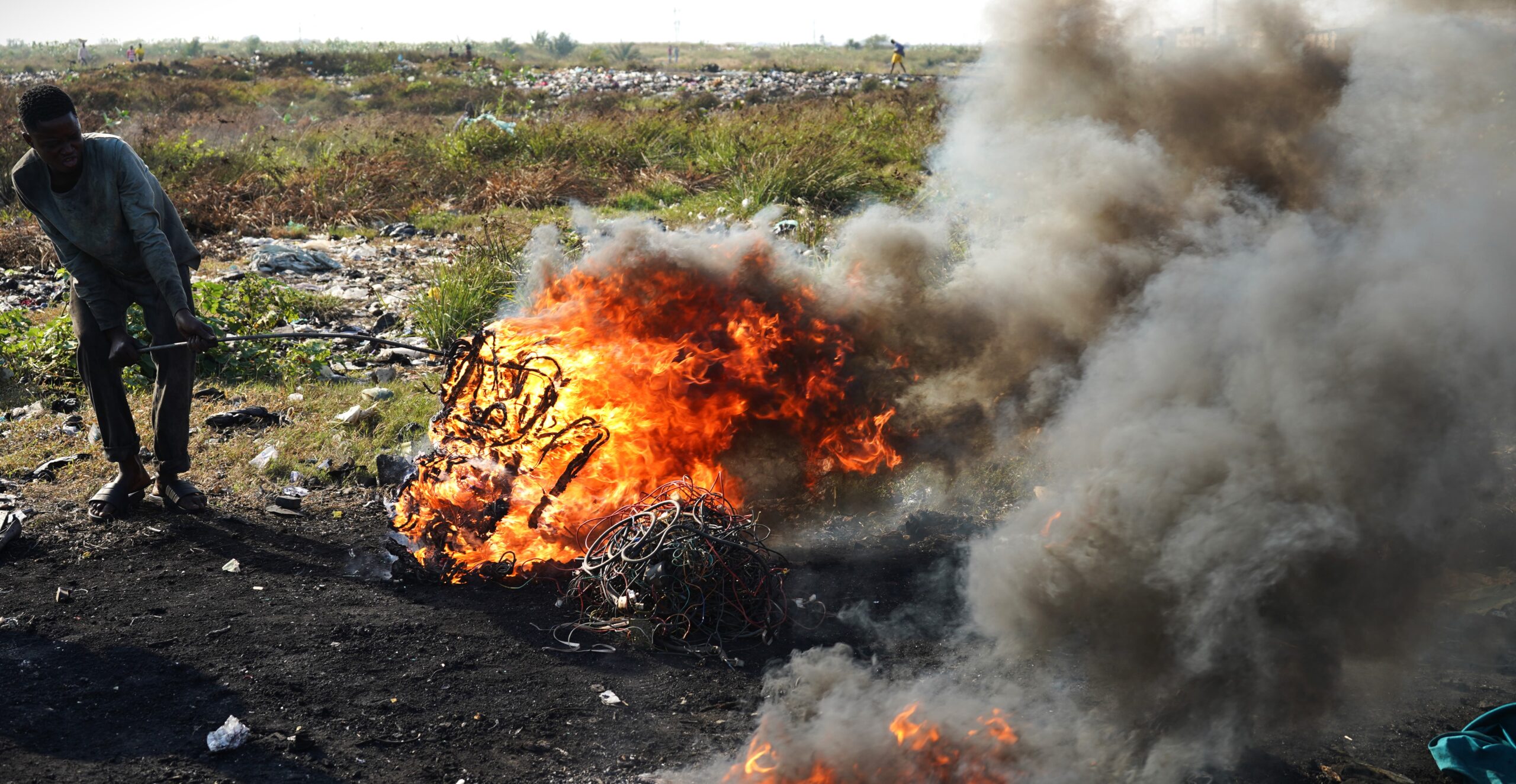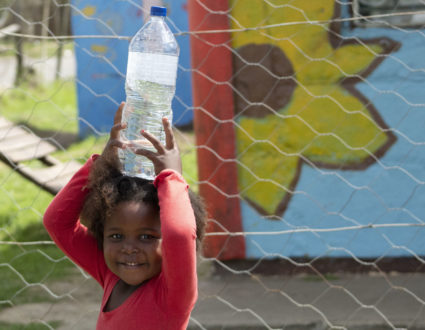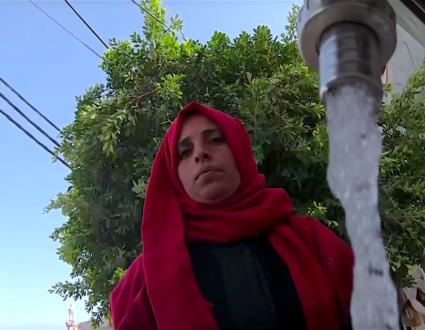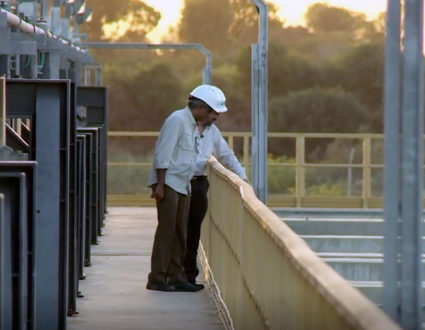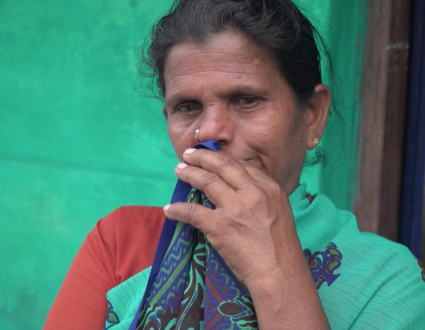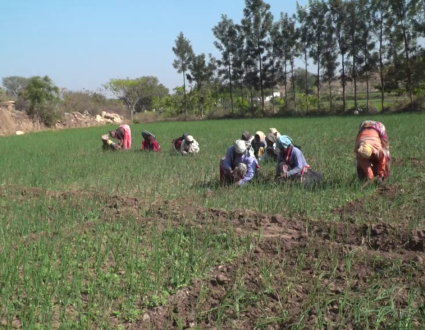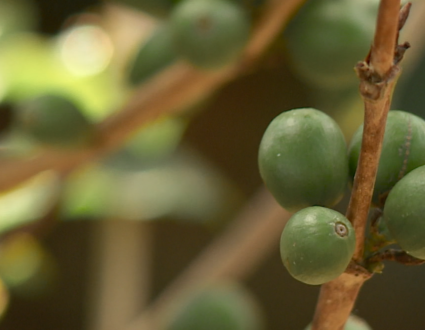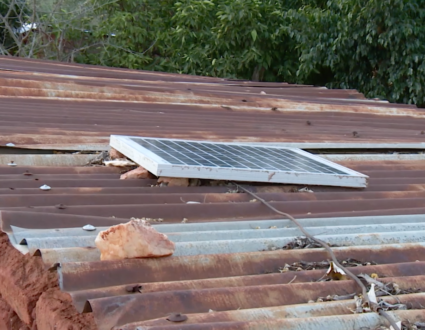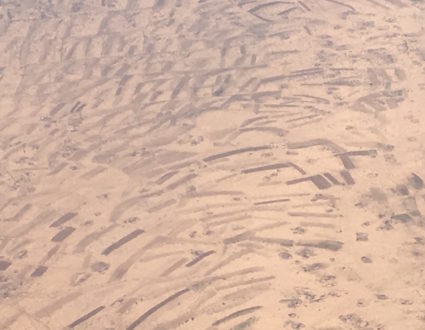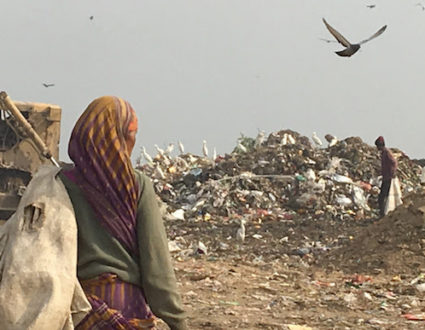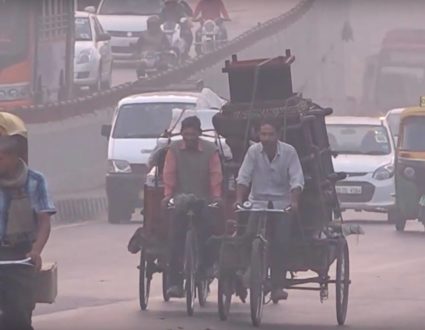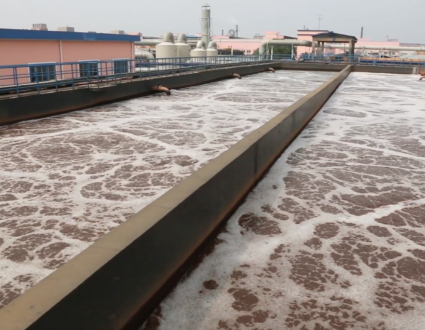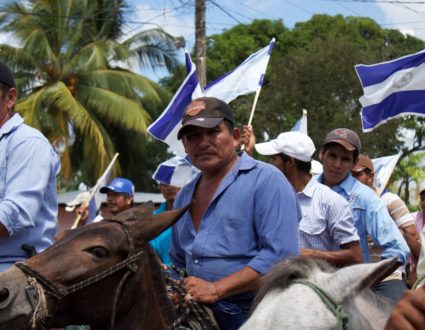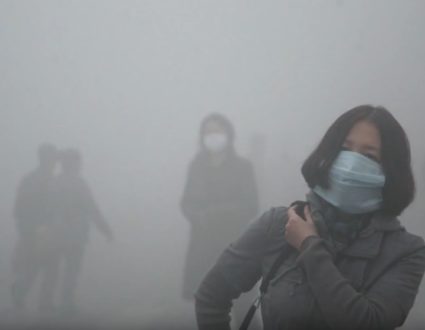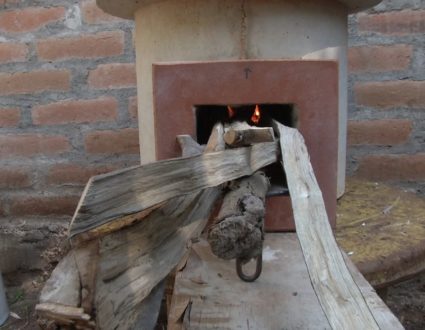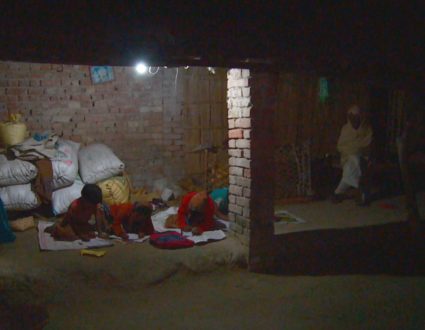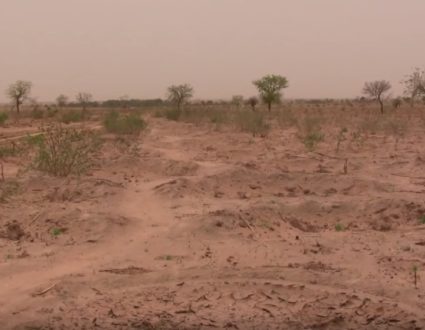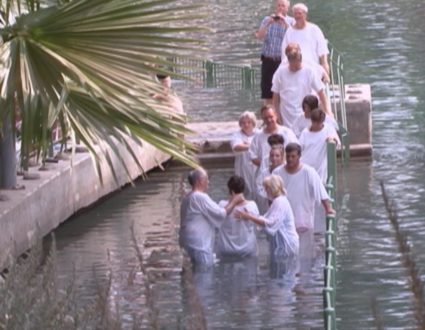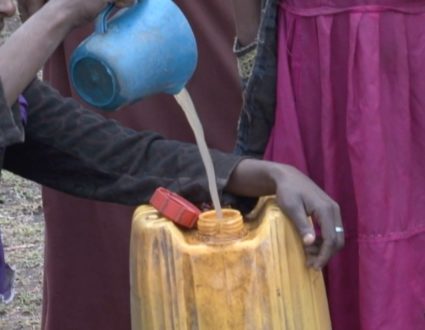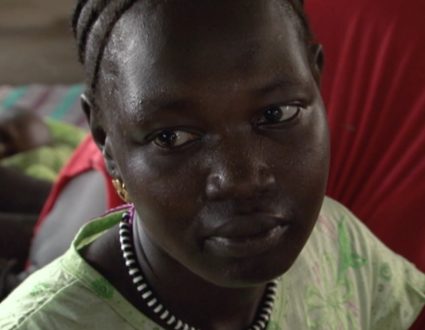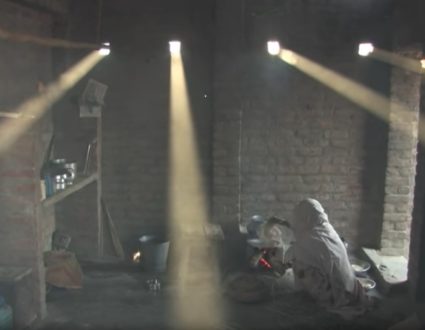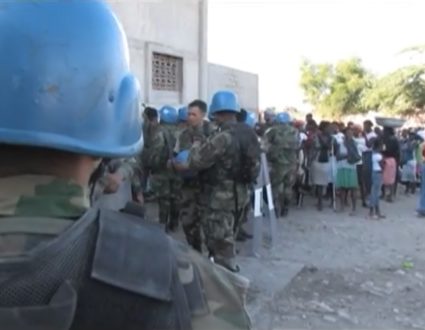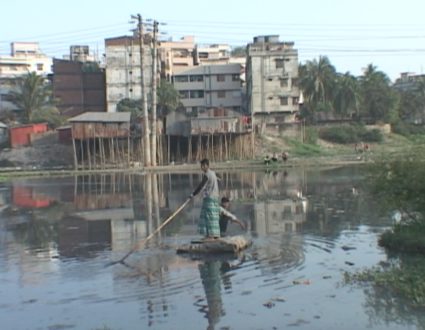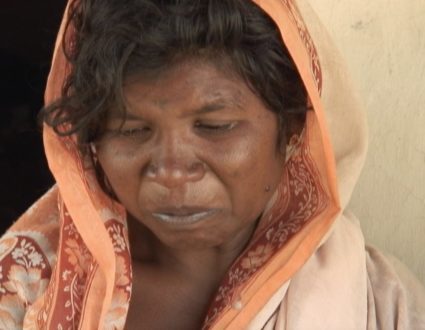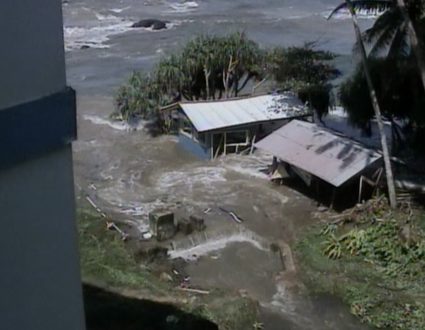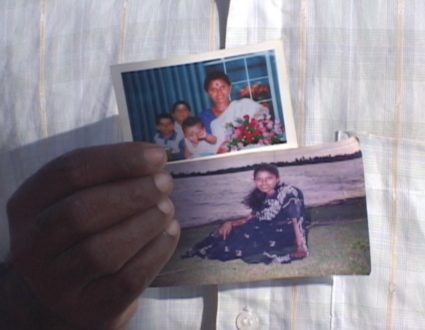- Amna Nawaz:When Americans are ready to get rid of a car or a laptop or some of their clothes, where do those goods go? Well, most end up in countries in the Global South, where millions of people depend on repairing, dismantling or selling them to make a living.But now, amid lax regulations and legal loopholes, environmental groups say the business is a toxic trifecta of waste that inflicts catastrophic damage to land, coastlines and public health.Fred De Sam Lazaro has the first of two reports from the West African nation of Ghana, produced in partnership with the Pulitzer Center.
- Fred De Sam Lazaro:Ghana has enjoyed economic growth in recent years and nowhere is that more evident than on Accra’s streets, where growing incomes have spiked the demand for automobiles.Like cities anywhere, traffic delays are part of daily life, but here they are costly not just in time, but health and safety and the environment.The cars that clog the streets of Ghana’s capital have come a long way to be here, but they didn’t come directly from a factory. Instead, most have had long lives on the streets of America, Germany, Dubai and many other places before being shipped here, long lives, that is, unless they were in an accident. That’s how this 2018 Toyota sedan wound up in a repair yard.This came from the United States, Northern Virginia, in fact. We traced it back to a listing on an auction Web site, where it was sold along with millions of used cars across a range of conditions shipped to Africa each year.
- Rob De Jong, United Nations Environment Program:Some of them don’t even make it onto the boat. They need to be pushed on.
- Fred De Sam Lazaro:Kenya-based Rob de Jong with the United Nations Environment Program has studied the global trade in used cars.So would you say that most vehicles would not be certified as safe on the roads of countries where they came from?
- Rob De Jong:Exporting countries export the majority of vehicles that are not roadworthy.
- Fred De Sam Lazaro:Not roadworthy.
- Rob De Jong:Not roadworthy.
- Fred De Sam Lazaro:At the repair shop, mechanic Solomon Artivi (sic) says how much the Corolla is repaired is informed by the new owner’s budget.So the side airbag has deployed and burst the seat open. Just the driver’s side airbag would be replaced, he told me, not the side and passenger ones. Many of the repaired vehicles hit the road less safe and more polluting, often arriving minus their catalytic converter, a device required in developed countries since the 1970s and key to cleaner emissions.There’s a robust global market for them because they contain platinum. We talked to a trio of mechanics in Accra’s auto repair district.Catalytic converters, you usually don’t fix it?
- Alex Nyarko, Auto Mechanic:If the person doesn’t have money, you don’t fix it. If you have money, then you fix it.
- Fred De Sam Lazaro:How many people fix it and how many don’t?A reaction that suggested most missing converters are not replaced.
- Francis Sarko, Auto Mechanic:It’s viewed only as a financial problem.
- Fred De Sam Lazaro:Financial problem.
- Francis Sarko:Yes.
- Fred De Sam Lazaro:So, most people just let it go?
- Francis Sarko:Yes.
- Fred De Sam Lazaro:Extending the life of cars that should really have been recycled in America or Europe.
- Rob De Jong:A vehicle in Europe is recycled for 95, 90 percent of its parts. So it’s a very good circular approach. However, they’re now more and more are just sent to Africa because it’s cheaper than to proper recycle them.
- Fred De Sam Lazaro:At the other end of their useful life here, the junk cars compound the crisis from another toxic import, electronic waste.
- Man:They take from vehicles, cars.
- Fred De Sam Lazaro:Every day, scrap workers harvest components from cars and all manner of electronics. They’re looking in particular for metals, which are extracted mainly by incineration.This is the epicenter of Ghana’s imported waste industry. Thousands of tons of used washers and dryers, refrigerators, computer hardware and air conditioners sit here awaiting demolition by people looking for anything of value inside them.
- Michael Anane, Environmental Journalist:Everything here is basically enveloped in toxic fuel.
- Fred De Sam Lazaro:I came here with Michael Anane, who we hired as a consultant for this report. He’s a veteran environmental journalist who’s worked for the group Greenpeace.
- Michael Anane:We’re talking about mercury. I mean, all the toxic heavy meddles that you can find in electronic waste are here. They’re right in the soil. They’re in the smoke. We’re breathing it.
- Fred De Sam Lazaro:An international agreement intended to prohibit the export of electronic waste went into effect in 1992. The U.S. did not ratify this BASEL convention, but even in countries that did, there’s a huge loophole. Items classified as repairable, often labeled as charity, are exempt.
- Michael Anane:When you examine these items that are coming here, they are either obsolete and simply would not work.
- Fred De Sam Lazaro:Critics argue these so-called donations are causing more issues than they are solving.Before we were shooed away by a supervisor, we talked with young men who work here, some without even gloves, sifting dirt to separate and salvage small scraps of metal.How much do you earn here?
- KOFI YAO, Waste Worker:Fifty (INAUDIBLE)
- Fred De Sam Lazaro:That’s about $3 dollars a day; 14-year-old Jefferson Philip told us he works here after school to help pay his school fees.What’s your favorite subject?
- Jefferson Philip, Waste Worker:Mathematics.
- Fred De Sam Lazaro:Mathematics? What would you like to be when you grow up?
- Jefferson Philip:Doctor.
- Fred De Sam Lazaro:A doctor.High aspiration, but if his path is like so many men here, it may not take him far, literally.Like Jefferson, Mohammed Awal came here when he was 14 from the country’s unsettled north in search of work after his father died.
- Mohammed Awal, Waste Worker:Fifteen years ago, this is my work I’m doing.
- Fred De Sam Lazaro:For fifteen years?
- Mohammed Awal:Yes, it’s support my family.
- Fred De Sam Lazaro:He works six days a week, he says, to support his wife and four children.What would you like to do in your future?
- Mohammed Awal:My future, I want to stop this work. I want to travel to Europe and work and save my family, because I want to let my children to take education.Kate O’Neill, University of California, Berkeley: There are around 20 million people in the world making their livelihoods off waste.
- Fred De Sam Lazaro:University of California, Berkeley, Professor Kate O’Neill is the author of three books about the recycling industry.
- Kate O’Neill:Those people can’t be just tossed off their jobs. You have got to kind of create jobs, create markets, create ways in which we move from a waste economy to a repair economy, a repair and reuse economy, and that can be global.
- Fred De Sam Lazaro:Already, in many developing countries, she says, secondhand and refurbished electronics and appliances have thriving markets. But she says increasingly a lot of junk is sent here, hardware that, by design, has become difficult to dismantle and recycle, making it cheaper to send overseas, often disguised as a charitable donation.
- Kate O’Neill:I remember back when I had my first computers, they came with manuals. The way the industry is structured right now is what’s called planned obsolescence, to make sure we buy a new one every two years. So I think part of the problem is what we have can’t easily be recycled or refurbished.
- Larry Kotoe, Ghana’s Environmental Protection Agency:They need to bear some responsibility.
- Fred De Sam Lazaro:More immediately, exporting countries need to step up their oversight of what leaves their shores, says Larry Kotoe of Ghana’s Environmental Protection Agency.
- Larry Kotoe:Developed countries need to do more within their own jurisdiction when it comes to exports of some of these items. They have, I would say, enough resources to be able to tell which items are actually junk and which ones are not, compared to us.
- Fred De Sam Lazaro:An admonition we also heard on the street, loudly and clearly, despite a language barrier, when a nearby merchant, Yakubu Salifu, interrupted our interview with Mohammed Awal.
- Yakubu Salifu, Merchant:It’s you peoples. Africa no create copper. Africa no create rubber. Africa no create car, car tire. Then you come and take video, and you say we Africa, we burn burn!
- Michael Anane:What he’s saying is that it is the white people who are bringing all the garbage, all the junk, all the electronics here. And then we are burning. And after burning, you ask for these things to be sent to you.
- Fred De Sam Lazaro:Much of the waste material here comes from Europe and the U.S., though the copper or aluminum that’s extracted is usually destined for China and India.The detritus, people here complain, leeches or is washed into the lagoons and drains that drain into the Atlantic Ocean, only to be washed back onto beaches, mixing with a different kind of waste. It starts in the reject pile from thrift stores in wealthy countries. We will have that story in the second part of our series.For the “PBS News Hour,” I’m Fred De Sam Lazaro in Accra, Ghana.
- Amna Nawaz:Fred’s reporting is a partnership with the Under-Told Stories Project at the University of St. Thomas in Minnesota.
Where your junk cars and electronics go
and what happens to it
When Americans no longer want a car, laptop or clothes, where do some of those goods go? Most end up in the Global South, where millions of people depend on repairing, dismantling or selling them for a livelihood. Environmental groups say this is a toxic trifecta of waste that inflicts damage to land, coastlines and health. We report from Ghana in partnership with the Pulitzer Center to document one end of the global waste pipeline.
